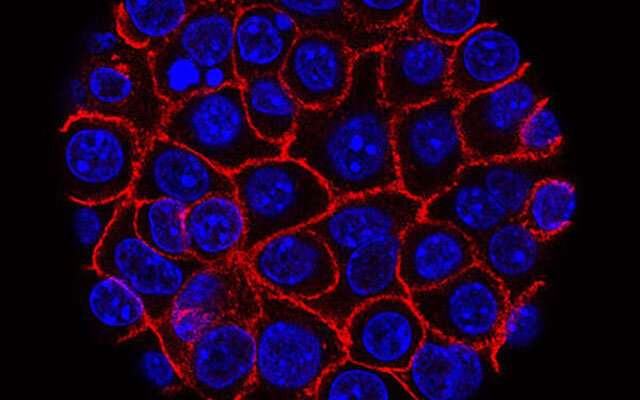Essential Protein Balance Identified to Accelerate Pancreatitis Recovery

New research uncovers how balancing IL-22 and IL-22BP proteins is crucial for effective healing and preventing chronic complications in pancreatitis patients.
Recent research has highlighted the critical role of protein regulation in promoting effective healing from pancreatitis, a common gastrointestinal condition often requiring hospitalization in the United States. The study, led by Dr. Timothy Frankel from the University of Michigan, focused on the interplay between interleukin-22 (IL-22) and its regulatory protein, IL-22 binding protein (IL-22BP). IL-22 is known to support tissue and organ recovery by stimulating cell proliferation, wound healing, and combating bacterial infections, particularly at barrier sites such as the gastrointestinal tract, skin, and lungs. Under normal conditions, IL-22BP controls IL-22 signaling to prevent excessive activity, ensuring tissue repair proceeds without unnecessary inflammation.
However, the research demonstrated that disrupting IL-22BP leads to unchecked IL-22 activity, which initially enhances healing in acute pancreatitis but can result in adverse effects during recovery from chronic pancreatitis. Specifically, the absence of IL-22BP caused persistent inflammation and fibrosis, impairing tissue regeneration and damaging epithelial cells, fibroblasts, and immune responses. These findings suggest that a delicate balance of IL-22 activity is vital: while sufficient signaling promotes healing, excessive or prolonged activity may hinder tissue recovery and lead to chronic inflammation.
The implications are significant for developing targeted therapies for pancreatitis, aiming to regulate IL-22 signaling precisely. Understanding how to modulate this pathway could help prevent recovery delays and chronic complications associated with pancreatitis, ultimately improving patient outcomes. The study underscores the importance of immune system regulation at barrier sites and offers insights into how maintaining protein balance can influence disease progression and healing processes.
This research was published in Cellular and Molecular Gastroenterology and Hepatology and was supported by insights from the team at the University of Michigan. For more information, visit source.
Stay Updated with Mia's Feed
Get the latest health & wellness insights delivered straight to your inbox.
Related Articles
Innovative Vaccines Show Promise in Combating Pancreatic Cancer in Preclinical Studies
New vaccine therapies targeting pancreatic cancer show promising results in preclinical studies, offering hope for more effective treatments or prevention methods against this deadly disease.
States Take Independent Action to Rebuild Public Trust Amid Confusion Over US Vaccine Policies
More states are taking independent steps to restore public trust and coordinate vaccine efforts amidst confusion over federal recommendations, highlighting regional leadership in public health.
Breakthrough in Natural Molecules Offers Hope for Glaucoma Patients
Scientists at the University of Missouri have identified natural molecules that could serve as biomarkers for early glaucoma detection and potential neuroprotective therapies to prevent vision loss. Discover how agmatine and thiamine might transform glaucoma management.



